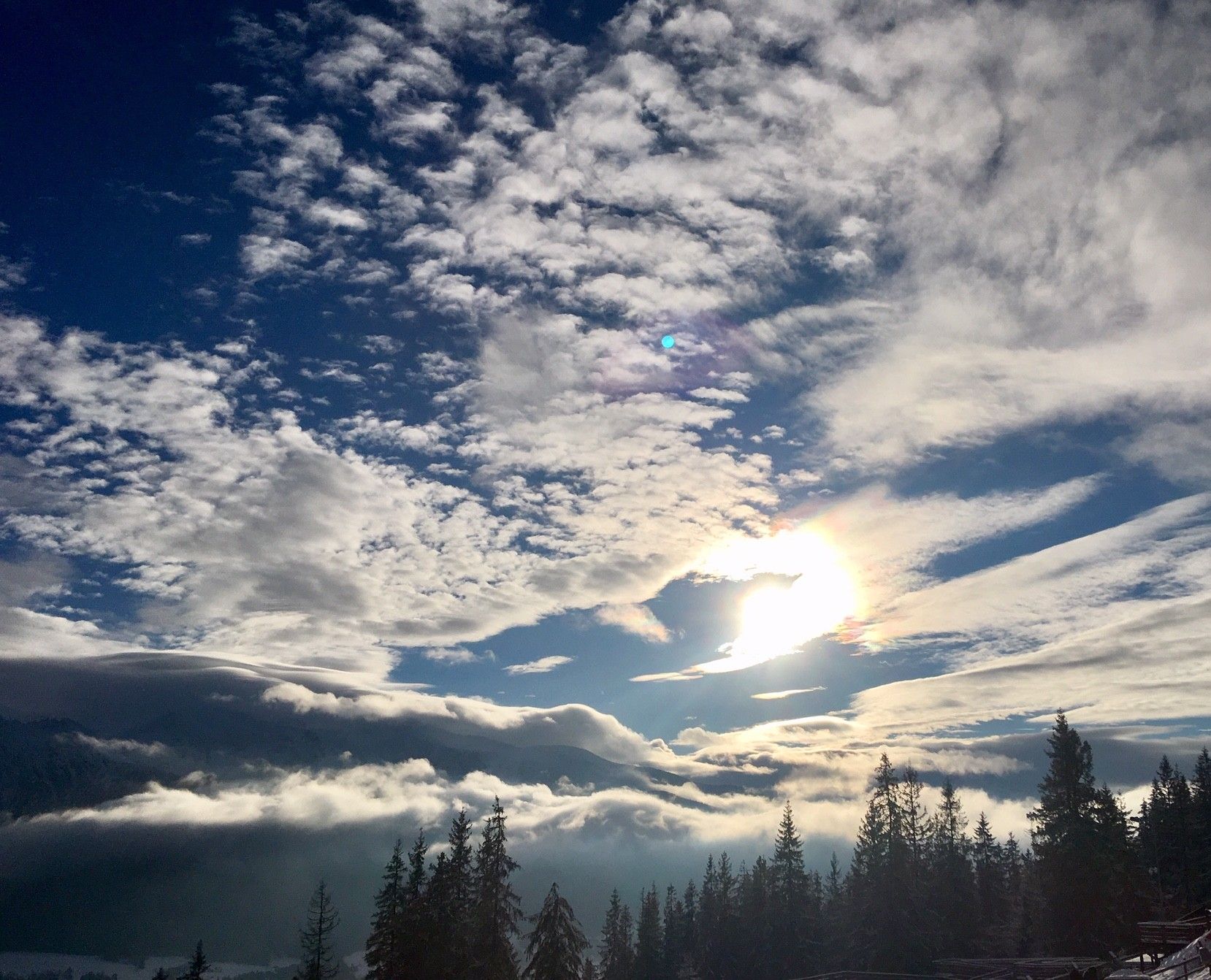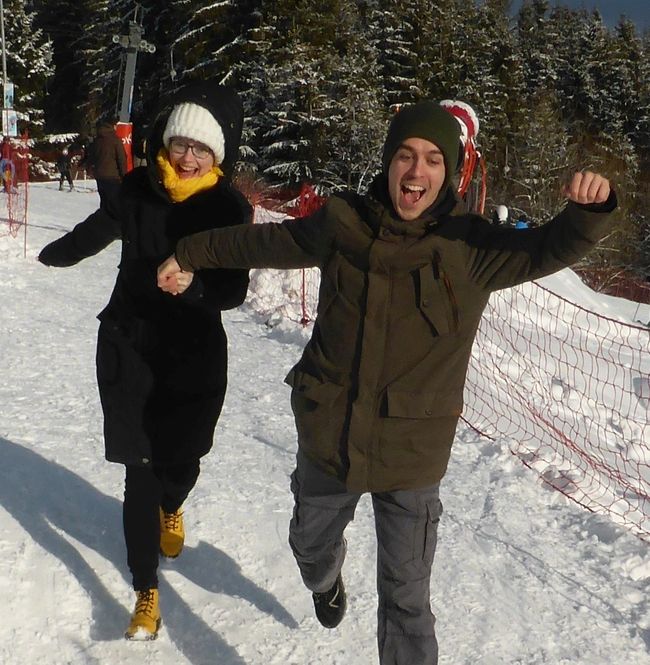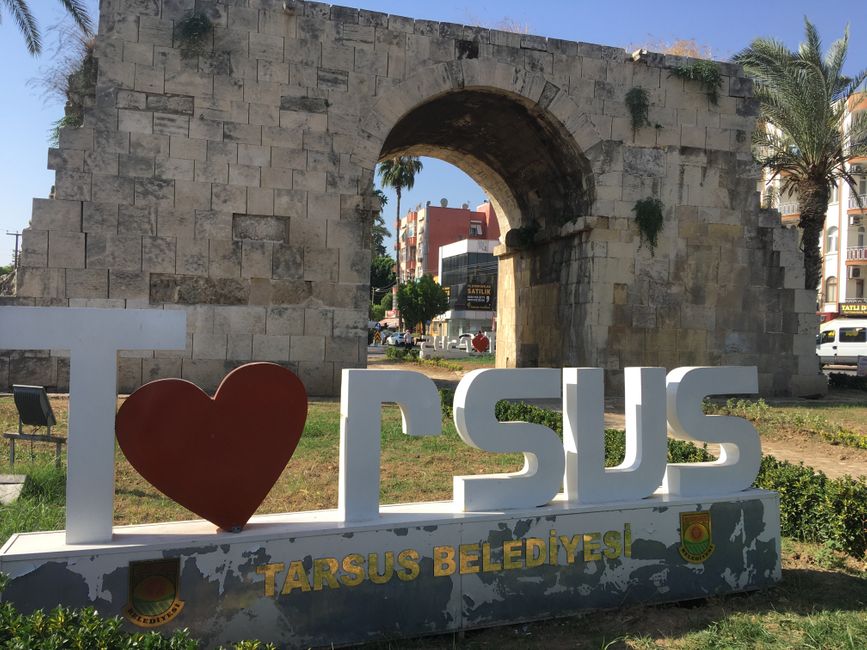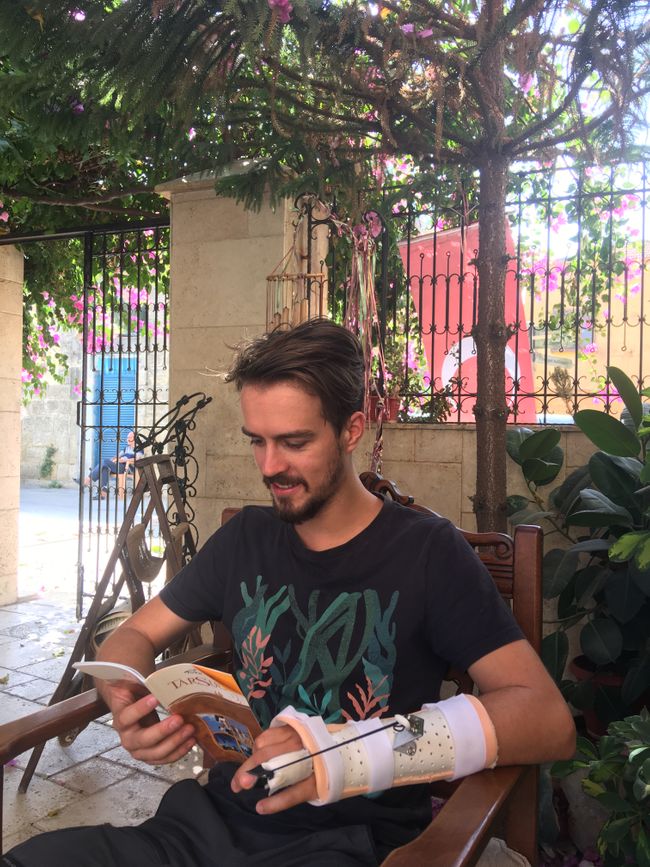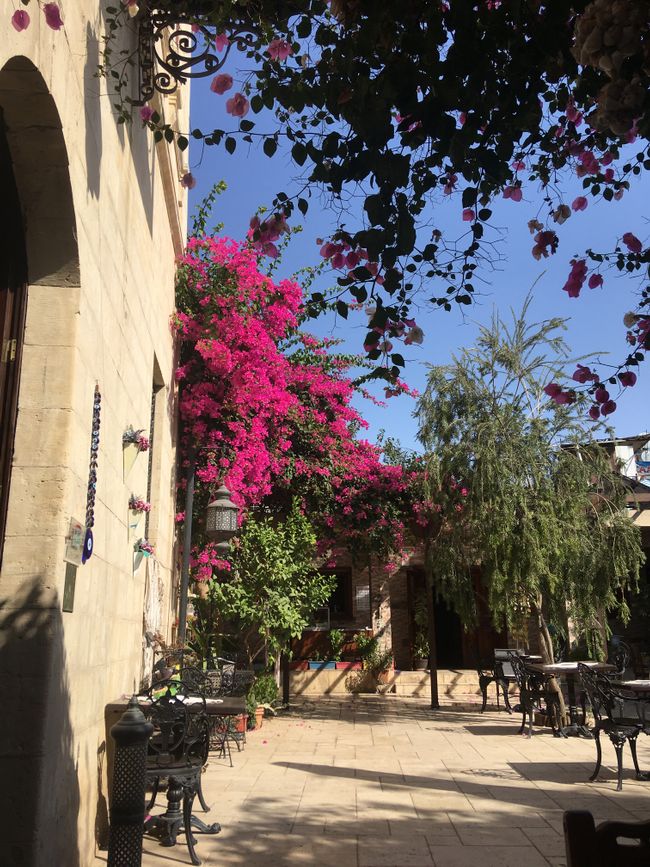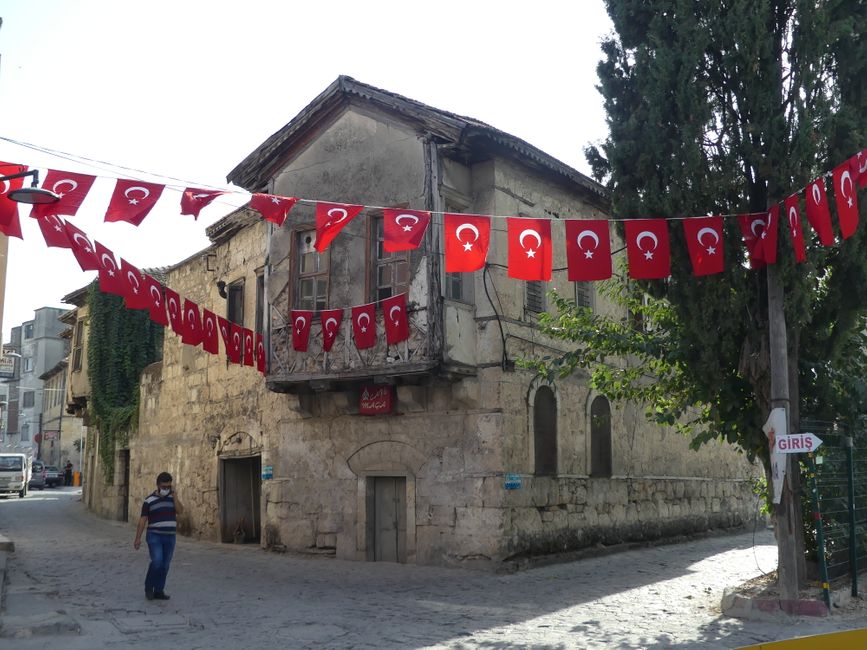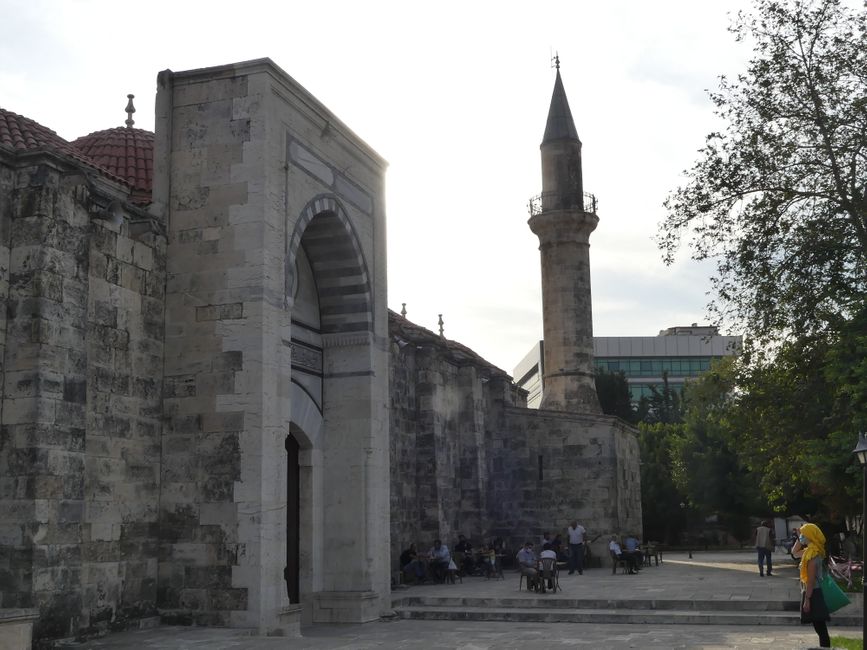Tarsus: On the trails of St. Paul
Pubblicato: 03.12.2020
Iscriviti alla Newsletter
English version below.
Our journey to Mersin takes us past rocky mountains, some covered in trees, and huge banana plantations. The sea is always on our right, sometimes with sandy beaches, sometimes crashing against rugged cliffs. A castle with an intact fortification wall and towers right by the sea. Harbor walls with lighthouses.
The roads are narrow, clinging to the mountainside, with steep drops on the right. When a truck comes towards us in a curve, we have to move back so that both vehicles can continue. The mountains here invite us to hike and explore, but unfortunately it's not an option for us at the moment because of Stefan's finger.
As we descend from the mountains into the plains of Anamur, we look out upon a plastic desert. Hundreds of greenhouses, steel structures covered with white tarps, cover the landscape. It's unsettling. Often, small houses are directly attached to the greenhouses. Mosques rise up amidst it all. As the sun sets into the sea, we ascend the mountains again and leave the sea below us in misty orange. It's an unreal sight; we can't tell where the sea ends and the sky begins. It's like looking into an infinite abyss.
The next day, we want to hike in Tarsus, following in the footsteps of the Apostle Paul. However, it's very questionable whether the buildings marked with Paul's insignia are really related to him. We visit the Paulusbrunnen, where his birth house supposedly stood, and the memorial church built in his name, estimated to have been built in the 5th century. But that's not all: we also explore the excavations around the tomb of the prophet Daniel, the Ulum Mosque, and the old church-mosque, which, as the name suggests, used to be a church.
But it's not just the two world religions, the Egyptians and Romans have also left their mark. Cleopatra in the form of an arch, which commemorates her meeting with Marcus Antonius in Tarsus. The Romans immortalized themselves here in the form of old Roman roads and, according to the travel guide, the "meager remnants" of the Roman bathhouse.
Plenty of tea, delicious baklava, watching a TV crew filming in the bakery where we just bought pastries, and our break in cafes with bougainvillea-covered courtyards round off our day. After this cultural stopover, we continue eastward.
Tarsus: On the trails of St. Paul
On our journey to Mersin, we pass by rocky mountains, some covered in trees. We see immense banana plantations. The sea stays on our right, waves sometimes breaking on the beach, sometimes on craggy cliffs. We see a castle surrounded by walls and towers adjoining the ocean, piers with lighthouses.
The road is narrow and close to the mountain side. Right next to us are the steep cliffs. Our bus has to reverse once or twice to let a truck pass. The landscape seems to be really inviting for another hiking and camping trip, but due to Stefan's finger this is not an option right now.
As we cross the mountains, the plains of Anamur lie before us: Endless fields of white greenhouses covered in plastic, only broken up by mosques here and there. It looks sterile and a little scary to us. As the sun sets and we climb the mountains again, the sea is disguised in foggy orange. It's hard to point out where the sea ends and the sky starts. It feels like staring into endless infinity.
On the next day, we follow the path of St. Paul when we visit Tarsus. We see St. Paul's well, which is said to be on the site of his birthplace, and St. Paul's church, that was built in the 5th century. Besides, we explore the excavation site of St. Daniel, Ulu mosque and the old church-mosque that happened to be a church once.
However, there are not only marks of the big religions, but also of the Egyptians and Romans in Tarsus. The famous Cleopatra Gate commemorates the meeting between her and Marcus Antonius in Tarsus and the Romans left behind their old roads and the remains of an antique bath.
Çay and Baklava complete the experience and we even meet a TV crew who films in the bakery where we have bought our pastries before. After this cultural intermezzo, we go onwards to the east of the country.
Iscriviti alla Newsletter
Risposta
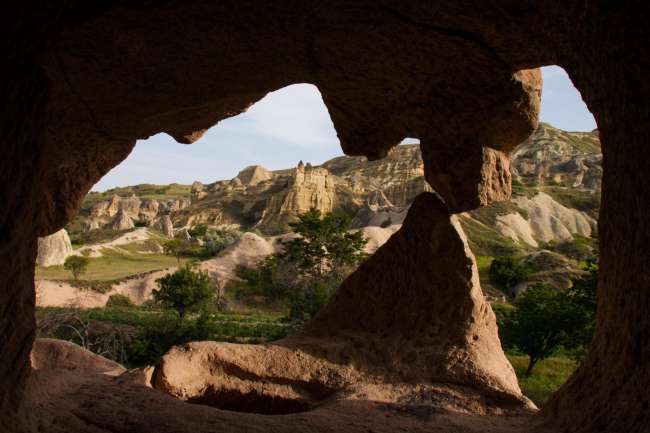
Rapporti di viaggio Tacchino
